- Home
- Norman Mailer
Mind of an Outlaw
Mind of an Outlaw Read online
Mind of an Outlaw is a work of nonfiction. Some names and identifying details have been changed.
Copyright © 2013 by the Estate of Norman Mailer
Introduction copyright © 2013 by Jonathan Lethem
Editor’s Preface copyright © 2013 by Phillip Sipiora
All rights reserved.
Published in the United States by Random House, an imprint of The Random House Publishing Group, a division of Random House LLC, a Penguin Random House Company, New York.
RANDOM HOUSE and the HOUSE colophon are registered trademarks of Random House LLC.
All of the essays in this collection except “Freud” have been previously published. Original Publication and Permission Credits are located on this page.
Library of Congress Cataloging-in-Publication Data
Mailer, Norman.
[Essays. Selections]
Mind of an outlaw: selected essays / Norman Mailer; edited by Phillip Sipiora ; introduction by Jonathan Lethem.
pages cm
Includes bibliographical references.
ISBN 978-0-8129-9347-9
eBook ISBN: 978-0-679-64565-8
I. Sipiora, Phillip, editor of compilation. II. Title.
PS3525.A4152A6 2013
814′.54—dc23
2013015716
www.atrandom.com
Cover design: Gabrielle Bordwin
Cover photograph: Bernard Gotfryd/Premium Archive/Getty Images
v3.1
Contents
Cover
Title Page
Copyright
Introduction by Jonathan Lethem
Editor’s Preface by Phillip Sipiora
1940s
A Credo for the Living
1950s
Freud
The Homosexual Villain
What I Think of Artistic Freedom
Raison d’Être
On Lies, Power, and Obscenity
Nomination of Ernest Hemingway for President: Part I
Nomination of Ernest Hemingway for President: Part II
The White Negro
From Surplus Value to the Mass Media
Quick Evaluations on the Talent in the Room
The Mind of an Outlaw
1960s
Superman Comes to the Supermarket
An Evening with Jackie Kennedy
Suicides of Hemingway and Monroe
Punching Papa
Some Children of the Goddess
Introducing Our Argument
Our Argument as Last Presented
The Crazy One
Black Power
Looking for the Meat and Potatoes—Thoughts on Black Power
1970s
Millett and D. H. Lawrence
Tango, Last Tango
Genius
Christ, Satan, and the Presidential Candidate: A Visit to Jimmy Carter in Plains
Our Man at Harvard
1980s
Before the Literary Bar
Until Dead: Thoughts on Capital Punishment
Discovering Jack H. Abbott
Marilyn Monroe’s Sexiest Tapes and Discs
All the Pirates and People
Huckleberry Finn, Alive at One Hundred
The Hazards and Sources of Writing
1990s
Review of American Psycho
How the Wimp Won the War
By Heaven Inspired
The Best Move Lies Close to the Worst
Clinton and Dole: The War of the Oxymorons
At the Point of My Pen
2000s
Social Life, Literary Desires, Literary Corruption
Review of The Corrections
Gaining an Empire, Losing Democracy?
The White Man Unburdened
Immodest Proposals
The Election and America’s Future
Comment on the Passing of George Plimpton
On Sartre’s God Problem
Myth Versus Hypothesis
Original Publication and Permission Credits
Acknowledgments
Other Books by This Author
About the Author
About the Editor
Introduction
Jonathan Lethem
LET US SUPPOSE that a writer has sat down at his desk, aligned his fingers to familiar postures of readiness at the bare existential stage where wait QWERT and YUIOP—those unhelpful companions, mute as Beckett’s clowns—let us go and suppose the writer has offered himself here to a situation that is, on its face, impossible, a battle almost certainly lost before it begins.
Well, the odds are awfully good that the writer who has put himself in this position is Norman Mailer—unless it happens to be, as at this moment, another writer attempting to introduce Mailer’s Selected Essays and at the same time beguilingly ape Mailer’s typical strategy in arriving at a topic. Whether awarding Waiting for Godot a negative review without having seen it (as Mailer once did in his column in The Village Voice); or pegging his long consideration of the death penalty—in Parade magazine, no less!—on the defense of a flip provocation he’d made on The Phil Donohue Show, where he’d claimed “we need a little capital punishment”; or prefacing his skirmish with feminism with a digression on how he’d spent a day mistakenly believing he’d won the Nobel Prize; or insistently reminding his readers that he wrote a lot of his books hurriedly, to satisfy contracts or make child-support payments—or, really, whenever frontloading nearly any stirring hypothesis with a prominent reminder of who it was that was doing the hypothesizing—Norman Mailer was a writer who never met a corner he didn’t wish to paint himself into. It is one thing to go looking for fights. Certainly this is our default image of Mailer: provocateur, bare-knuckle brawler. It is another thing to go into so many fights having artfully tied one hand behind one’s back. Sometimes both hands. If Mailer’s favorite quote, from André Gide, was “Please do not understand me too quickly,” it might often seem he baited his most significant forays into prose with a temptation to the reader to dismiss him almost immediately.
And here, tasked with giving a proper envoi to what I do believe is a great reader’s voyage of a book, I’ve gone and “done a Mailer”—I’m burying the man before I even begin to try to figure out how to praise him. My excuse is that he seems to demand it, by the logic of his own self-demolitions: Watch Mailer climb out of the hole once again, folks! I’ll commit another Mailer gesture, then, and quote myself. This, from the first and only other time I tried to write about the man:
In hindsight, Mailer looked in the late fifties to have become a radar detector for the onset of … the postmodern cultural condition generally—in his declared topics, his appetite to engulf every dissident impulse and the whole atmosphere of paranoia and revelation that saturated the sixties, though he delivered barely any fiction to reflect it, in his predictions in essays like “Superman Comes to the Supermarket”; in his self-annihilating advocacy of Burroughs’s Naked Lunch; in his desperate, dashed-off forays in Why Are We in Vietnam? and An American Dream, and so on. The reason Mailer couldn’t arrive at a satisfactory postmodern style (even as he saw his one firm achievement in The Naked and the Dead mummified by ironic treatments of his war by Heller, Vonnegut, and Pynchon) was because postmodernism as an art practice extended from modernism, to which Mailer had never authentically responded in the first place. This might have been Mailer’s dirty secret: He was still back with James T. Farrell’s Studs Lonigan in the soul of his aesthetics, even as the rest of his intelligence raced madly downfield, sometimes sprinting decades past his contemporaries.…
So defend indefensible Mailer. [His best books are:] Advertisements for Myself, The Armies of the Night, the two campaign books, and, er, parts of The Fight, parts
of Of a Fire on the Moon, parts of Cannibals and Christians … parts of etc. Parts, always parts. The novelist Darin Strauss, confessing his Mailer-thing to me when I confessed mine, said, “Other writers are inconsistent book to book, but Mailer’s inconsistent within books, sometimes even within paragraphs.…” I wonder: Does anyone credit Mailer this postmodern way, as a purveyor of fragments, a centrifuge of sentences? Mailer’s false accents—Texas, Patrician, boxer-tough—are like Orson Welles’s false noses.
Reading that now, it seems to me that despite how I’d assumed a (rather Maileresque) posture as the lone voice in the wilderness, I really fell in with the rough consensus: that Mailer, self-appointed great novelist with no definitively great novels to his credit, found his greatness instead in his nonfiction voice—in the volcanic river of his “New Journalism,” from the Village Voice columns through to when, in the eighties, he (largely) recommitted himself to novels. A consensus that Mailer’s great subject was himself, not in the usual personal-essayist’s sense of “a private man revealed,” but as a public entity, an existential shadow-boxer and buffoonish slumming-patrician refusenik, moving through American history as a kind of disastrous recording angel, a lightning rod for exemplary controversies, a cautionary tale he alone couldn’t learn from. In the words of Harold Bloom, “he is his own supreme fiction.… the author of ‘Norman Mailer,’ a lengthy, discontinuous, and perhaps canonical fiction.”
So, do I agree with Bloom, and with myself? Yes and yes, there’s no doubt; it’s for this reason I’ll go on thinking Advertisements for Myself is Mailer’s greatest book, simply because it frames the drama of the construction of this voice, the thrilling resurrection of his personality as his greatest asset after the public pratfalls accompanying his second and third novels. That book sails aloft on Mailer’s delighted discovery of the voice’s elasticity and reach. (Then again, Armies of the Night is Advertisements’s equal, for it is in the march on the Pentagon that the voice discovers its greatest subject and fiercest power of implication.) Everywhere, Mailer negotiates with imagined persecutors and pursuers, those who’d keep him from feeling all he feels, suspecting all he suspects, attempting all he’d attempt (as well as what he wouldn’t ever get around to attempting), yet never in despair. Never hounded. Always with an exhilaration more magnanimous than nose-thumbing, as though to say: There you go! You’re pushing me and I’m pushing back, and don’t you see how it brings out the best in us both! To turn on Mailer his own praise of Marlon Brando, he’s “our greatest actor … and he is also our National Lout.” For, though his chosen emblem was the boxer (a Hemingwayesque overcompensation for the apparent passivity of the writer’s craft), Mailer’s is really a method actor’s style—and Brando’s career is as near to the impossible space Mailer’s gestures carved for himself in postwar American culture: always promising more than he could deliver, always inserting his own brooding self-consciousness between his audience and his ostensible creative task—and then providing captivating evidence of how, at its best, that obtrusive presence could be as much an artistic opportunity as it was a disaster area.
So, yes, Mailer as stylist, yes, Mailer as essayist, yes, but also no, because it could never be so simple: Mailer’s essays are those of a novelist, and they would be even if he quit reminding us it was so. It’s not merely how the essays gain energy from the theatricality of the novelist turning almost in irritation from his main task—will he ever be allowed to reel in that big fish?—but that where these essays explode most into greatness is in their capacities for portraiture, scene-making, fictional conjecture, passages of free indirect style worthy of any Flaubertian master. “Norman Mailer” may demand the ironic title as this novelist’s greatest character, but he has other great ones: “Dick Nixon,” “Pat Nixon,” “Barbara Bush,” “Bob Dole” (I’m tempted just to say “the Republican Party”), “Ernest Hemingway,” “Henry Miller,” “Robert Lowell,” “Jack Henry Abbott,” and so on. These characters are, by definition, floated into a realm somewhere between fiction and non-, full of Mailer’s projections and yearnings (in at least one case with disastrous results: In a brilliant intuition, Mailer compares his prison pen pal Abbott to Chauncey Gardiner, the lead character from Jerzy Kosinski’s Being There, without grasping the deadly implications of his own insight). In any event, on the page, they become indelibly vivid, persuasive players on crucial stages of Mailer’s devising, in dramas in which he never fails to persuade us of the stakes. The very best instances have all Mailer’s seemingly guileless gestures coming together to form thought-experiments of stunning impact. Take, for example, that Parade essay on the death penalty. As we groan our way into Mailer’s unsavory defense of his passing remark in favor of execution, the novelist sneaks up on us with a haunting evocation of the meaning of an execution within prison walls, in the minds of the guards and the prisoners. From there he widens the horizon, invoking a complicity that forces readers both to challenge easy—“liberal”—assumptions, and to dabble at least momentarily in Mailer’s take on the American twentieth century, which he views (if you’ll pardon a feeble paraphrase—he wouldn’t) as reassuring itself with an uneasy delusory layer of science, law, and reason, one covering a cauldron full of uncanny forces, of outrageous stirrings of hatred and desire.
I’ll stop there—to isolate Mailer’s “ideas” from the context of a style at once aphoristic, discursive, and performative is to hang them out to dry as much as would be the case with those of Nietzsche and G. K. Chesterton, his companion talents in dialectics, provocation, and paradox. As in the case of Nietzsche and Chesterton, you’ll be forced to argue with Mailer’s thinking, and it is certain that in many cases you’ll want to reject it—but to do so, you must enter the ground of his thinking as it is enacted here: with genius.
Editor’s Preface
Phillip Sipiora
NORMAN MAILER WAS arguably the foremost public intellectual of the second half of the twentieth century. With the publication of his first novel in 1948, The Naked and the Dead, he emerged as one of America’s most important creative writers and soon thereafter established himself as a potent and provocative essayist, filmmaker, playwright, short-fiction writer, poet, biographer, journalist, cultural and political commentator, and media star. His ubiquitous presence over the decades in print and on the airwaves—William F. Buckley Jr.’s Firing Line, The Dick Cavett Show, The Tonight Show Starring Johnny Carson, and Charlie Rose—is proof that he possessed a mind and personality that immensely engaged the public. While the span between his first novel and his last, The Castle in the Forest, was a remarkable fifty-nine years, the complexity and heterogeneity of his vast, deep interests are best represented in his essays. For Mailer the essay, even more than his fiction, provided a forum in which he could unrelentingly confront the social, political, and cultural crises of the day. In his essays, Mailer’s persistent curiosity—coupled with his discursive prose—engages, opposes, clarifies, complicates, and rigorously challenges whatever subjects he takes on.
As the founding editor of The Mailer Review and a member of the Norman Mailer Society board of directors, I have worked closely with Mailer’s oeuvre for more than ten years. I knew Mailer personally; I teach his works and write about him frequently. Yet shaping this collection was a daunting process because I could include only a small fraction of his most powerful work. Mailer had written so much that the excluded essays ended up far exceeding in number those ultimately selected. I began the compilation of this volume by separating the essays into thematic categories: Prisms of the Self, Arts and Letters, the Political Arena, Race, Gender, Culture and Counterculture, American Sexuality, the Metaphor of Sport, War and Peace, Crime and Punishment, the Art of Writing, and Cosmology. These were useful for narrowing down the most interesting, relevant, and representative essays from six decades. However, the categories ultimately felt limiting, reductive, and exclusive. How does one confidently assign a “sexual” essay to either Gender or American Sexuality? Therefore, to avoid issues of
overlap and confusion, the essays appear here chronologically. Although I consulted with a number of Mailer scholars, editors, other writers, librarians, archivists, and members of Mailer’s family in choosing these essays, this table of contents is not meant to be hierarchical, exhaustive, or by any means definitive. It is a beginning in arranging the work of a most complex writer.
Early on, I employed a simple principle of inclusion: Select only the very best essays in the Mailer canon. Two critical criteria were influence and staying power. Classic essays like “The White Negro” and “Mind of an Outlaw” were mandatory inclusions because of their continued importance over the years and their roles in establishing and representing the Mailer persona. I unearthed more obscure gems by combing through old issues of Esquire, The Village Voice, Saturday Review, The New York Review of Books, The Paris Review, The New Yorker, and Parade, as well as Playboy, Architectural Forum, The Harvard Advocate, and Dissent. This sort of research highlighted not only the striking range and complexity of his essays (as illustrated by the original categories) but also the exceptionally diverse nature of the vehicles for his work, something that distinguishes him from many of his contemporaries. From the 1940s into the new millennium he published essays next to advertisements for typewriter repair, Fruit-Fresh anti-browning preservative, and special-edition Playmates’ books. Looking through these decades of American journalism, I was reminded of how adaptable Mailer was to new times and new challenges and of how he was able to engage so effectively with diverse audiences. He demonstrated an unparalleled intellectual flexibility while never losing his edge and his sense of urgency.
Through the essay form, readers gain the closest access to Mailer because there are fewer veils separating the expositor from his listeners. In the very first sentence of 1948’s “A Credo for the Living,” twenty-five-year-old Mailer declares, “I must admit that I enjoy this opportunity to write a word or two about my own politics.” The full-throated vitality of young Mailer’s personality thus announces itself, carrying the same self-confidence and intellectual bravery that the mature Mailer would demonstrate time after time. With these early lines, readers enter a transaction that allows—and requires—them to meet Mailer personally. While reading Mailer’s essays, we become intimate with his inimitable intellect and forms of expression. We are taken into the depths of critical issues that Mailer has plumbed more profoundly than we ever could. But we are also forced to reexamine our beliefs, whether casual or deeply held. When Mailer proffers a position, he demands that we engage with him, that we become active participants or stop reading. Both writer and reader are tested in this exchange.

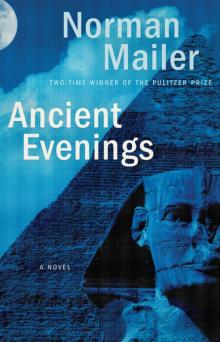 Ancient Evenings
Ancient Evenings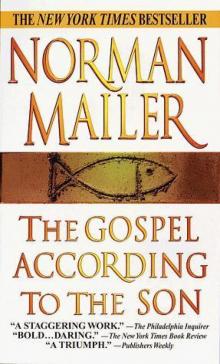 The Gospel According to the Son
The Gospel According to the Son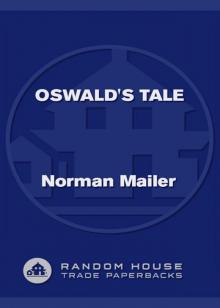 Oswald's Tale: An American Mystery
Oswald's Tale: An American Mystery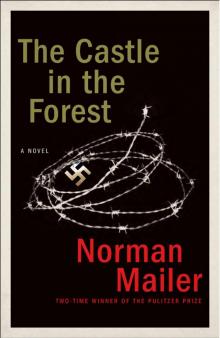 The Castle in the Forest
The Castle in the Forest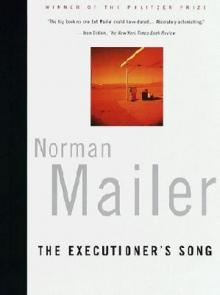 The Executioner's Song
The Executioner's Song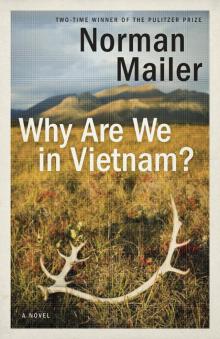 Why Are We in Vietnam?
Why Are We in Vietnam?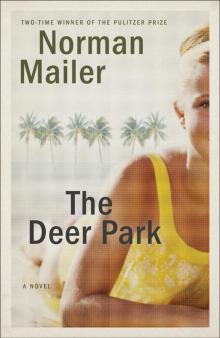 The Deer Park: A Play
The Deer Park: A Play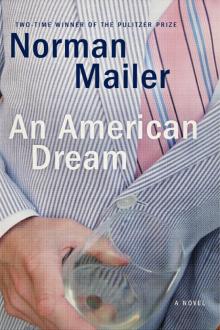 An American Dream
An American Dream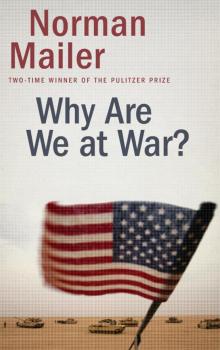 Why Are We at War?
Why Are We at War?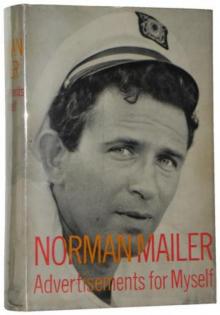 The Time of Her Time
The Time of Her Time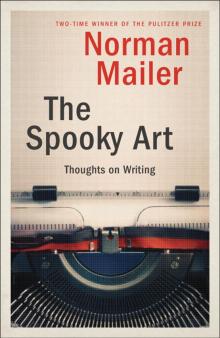 The Spooky Art: Thoughts on Writing
The Spooky Art: Thoughts on Writing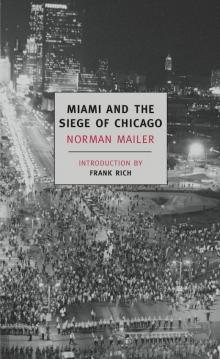 Miami and the Siege of Chicago
Miami and the Siege of Chicago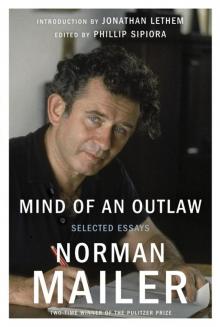 Mind of an Outlaw: Selected Essays
Mind of an Outlaw: Selected Essays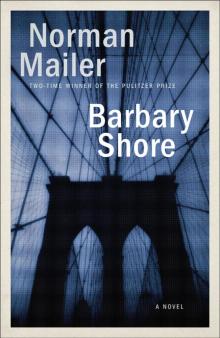 Barbary Shore
Barbary Shore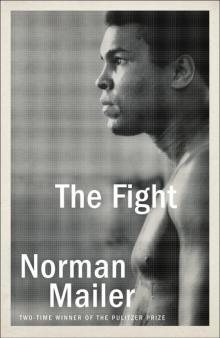 The Fight
The Fight Harlot's Ghost
Harlot's Ghost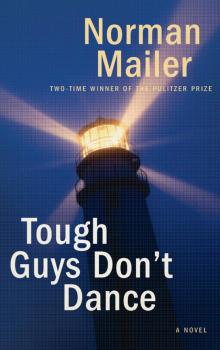 Tough Guys Don't Dance
Tough Guys Don't Dance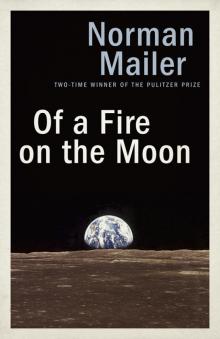 Of a Fire on the Moon
Of a Fire on the Moon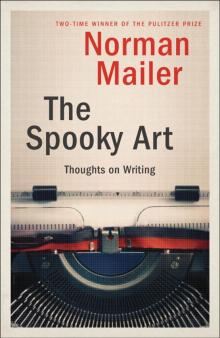 The Spooky Art
The Spooky Art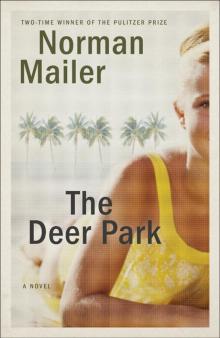 The Deer Park
The Deer Park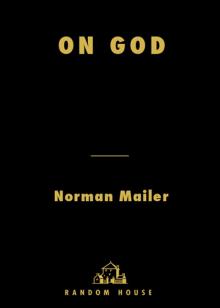 On God: An Uncommon Conversation
On God: An Uncommon Conversation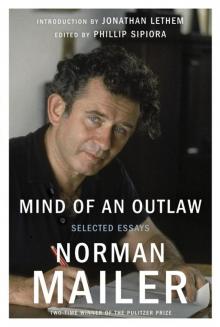 Mind of an Outlaw
Mind of an Outlaw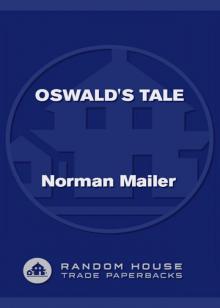 Oswald's Tale
Oswald's Tale